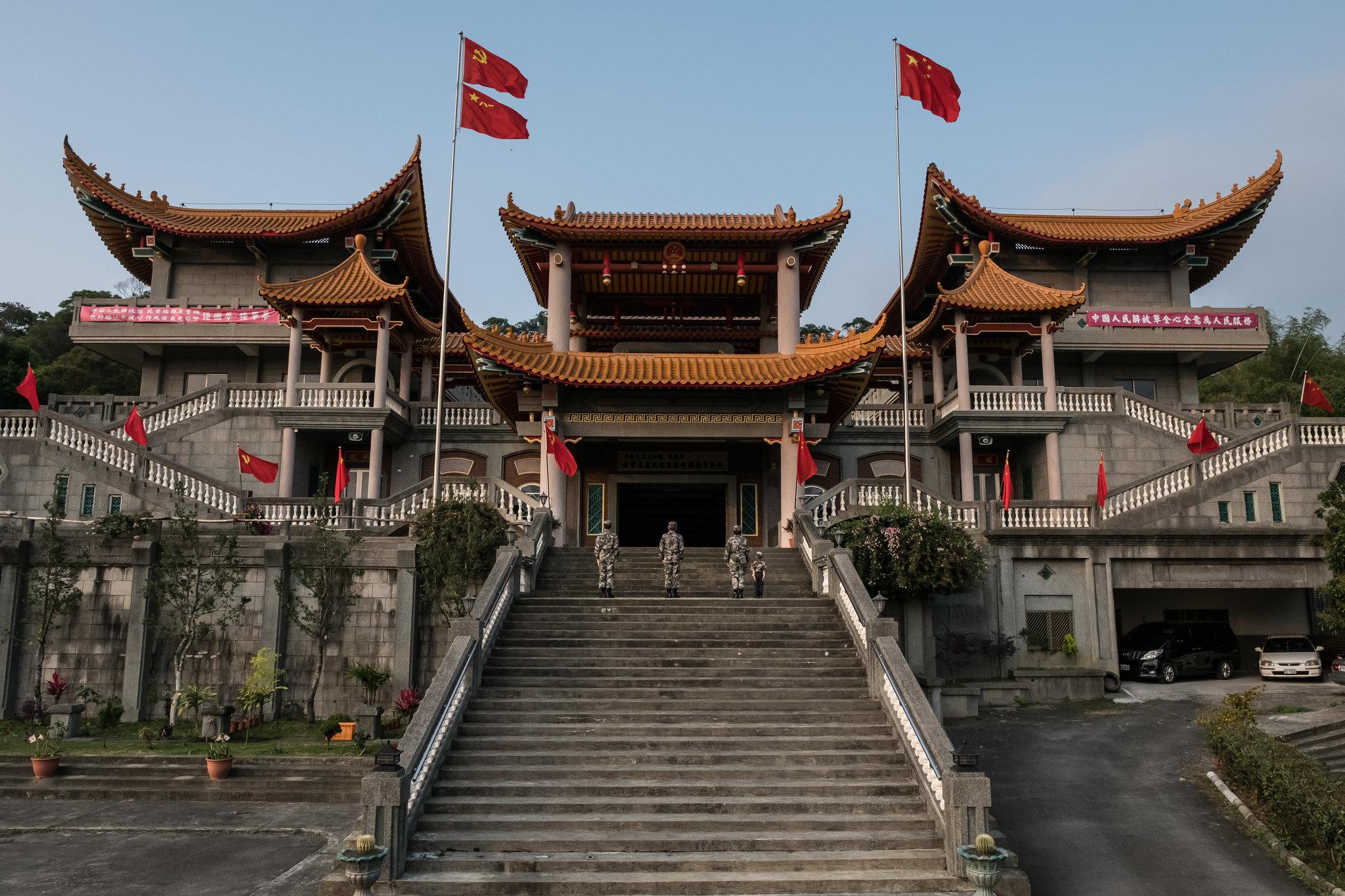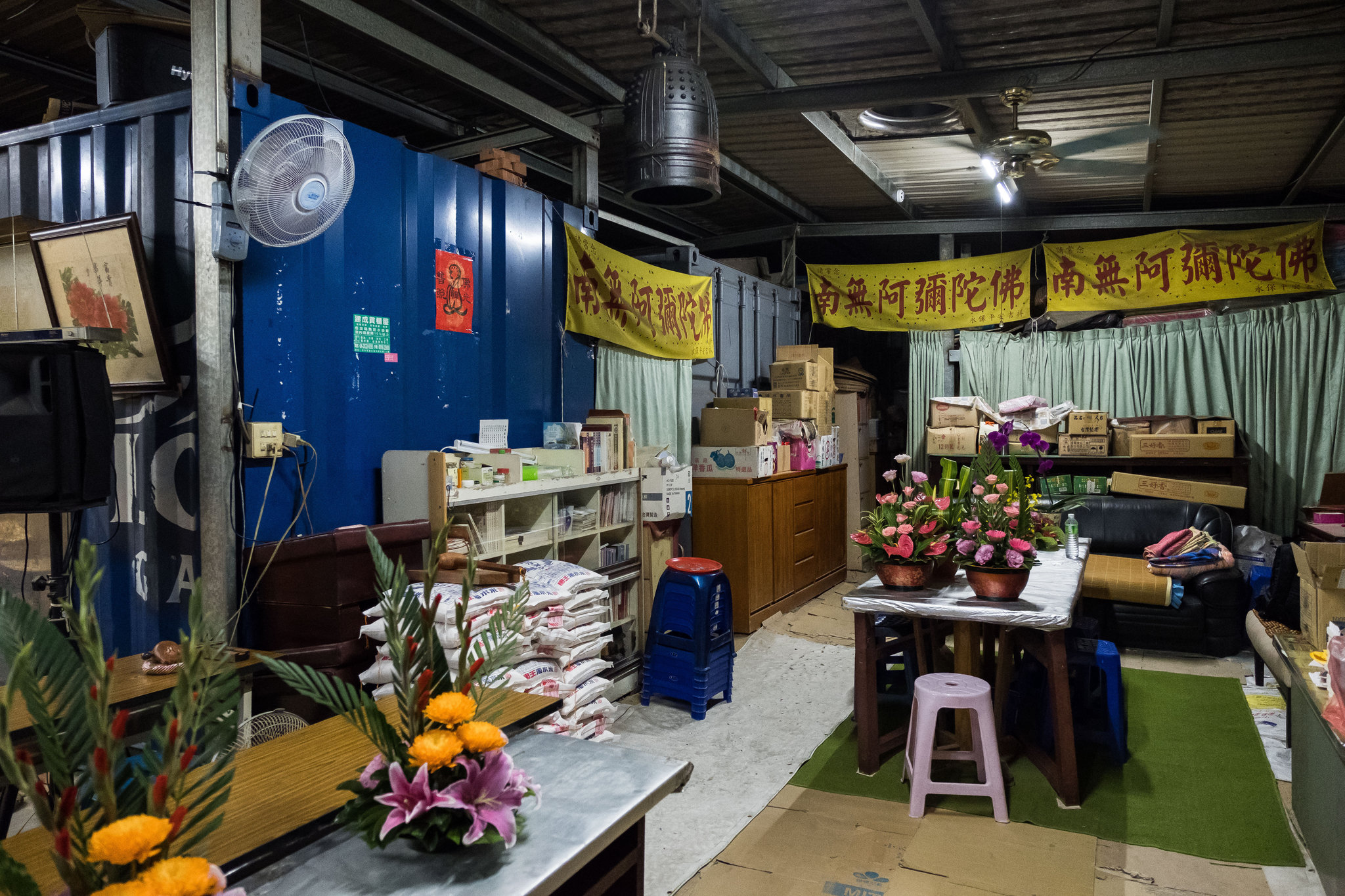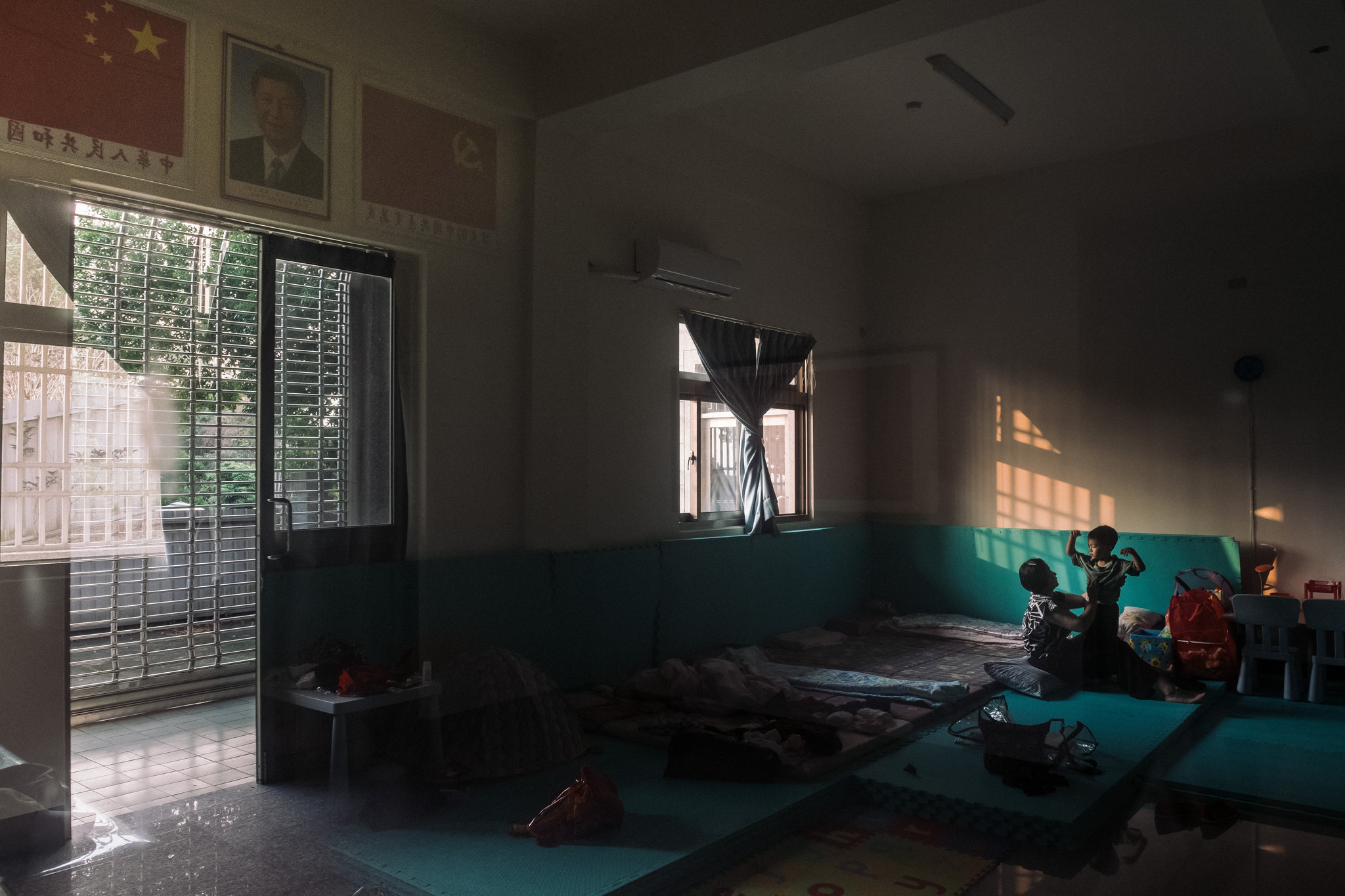(中央社記者尹俊傑紐約19日專電)彰化縣二水鄉碧雲禪寺多年前爆發糾紛,建商魏明仁取得寺產後更名「愛國教育基地」,升起五星旗。紐約時報報導,當地鄉民不滿魏明仁驅逐僧人,並懷疑中國勢力在背後運作。
魏明仁取得產權後,將有近百年歷史的碧雲禪寺更名為「中華人民共和國台灣省社會主義民族思想愛國教育基地」,寺內法器與墨寶,被中共象徵物、宣傳海報、毛澤東與周恩來等人畫像取代,多面五星旗飄揚在外。
報導指出,在台灣如此明顯展現對中國共產黨的支持,並非前所未聞,但仍極為罕見。

60歲的魏明仁向紐時表示:「我要向全世界與全中國宣告,我決心帶領台灣省人民和我們的祖國統一。」他說,在台灣升五星旗是責任所在,「世界沒有任何國家和勢力能阻止我們統一」。
報導寫道,若在數十年前的台灣,魏明仁所作所為肯定會被視為叛國。如今,台灣民主蓬勃發展,言論自由受到充分保障。
8月請辭參選和美鎮長的前彰化縣文化局長陳文彬說,台灣是自由國度,政府不會因民眾升五星旗就加以阻止。
儘管如此,台灣社會仍對中共深感懷疑。報導說,即使沒有證據顯示中國政府涉及碧雲禪寺爭議,當地人仍懷疑,魏明仁扮演北京當局代理人角色,特別是中國近來被控試圖干預加拿大、澳洲與紐西蘭等國內政,外界對中國影響力的疑慮不斷加深。
魏明仁否認中國勢力在背後運作,堅稱改造佛寺是個人想法,花的也是自己從事營建多年累積的資金。但紐時提到,魏明仁取得碧雲禪寺產權的手法,讓此事顯得極不單純。
魏明仁受雇擴建碧雲禪寺多年後,聲稱寺方欠錢不還。寺方則主張,已分期付清新台幣9900多萬元工程費,並指魏明仁誘騙其中一位僧人簽下本票,使他們承擔額外債務。雙方鬧上法院,碧雲禪寺面臨法拍,最後由魏明仁取得產權。
2012年,多位僧人遭逐出,自此生活在碧雲禪寺旁的貨櫃屋。他們為證明已付款給魏明仁,在圍牆貼上大量收據。
報導指出,碧雲禪寺由當地人出資興建,是農人的信仰中心,卻被改造成「愛國教育基地」,二水鄉民憤怒不已,但他們別無選擇,只能在僧人臨時搭建的場地祭拜,信眾逐漸減少。
遭驅逐的僧人認為,就算北京沒有插手,魏明仁也刻意和中共站在同一陣線,利用中國民族主義情緒高漲的機會,在碧雲禪寺產權糾紛中占得上風。
紐時表示,魏明仁的行為無疑博得對岸好感。中國極左派政治評論網站「烏有之鄉」在一篇文章寫道:「魏明仁先生及部分台灣愛國同胞舉行的升旗典禮具有劃時代的意義,他們的正義行為必將載入中華民族的史冊。」

ERSHUI, Taiwan — It was bad enough, villagers thought, when the kindly Buddhist nuns were forced out of their historic temple and longtime home. But what began as a bitter property dispute took a bizarre political turn — right into the heart of cross-strait tensions between China and Taiwan.
After taking over the property and evicting the four nuns who lived there, Wei Ming-jen, a Taiwan native hired to build an addition to the century-old building, set out to convert Biyun Temple into something likely never before seen on this island: an extravagant shrine to China’s Communist Party.
Gone are the Buddhist ritual drums and traditional Chinese calligraphy scrolls. Instead, Communist Party symbols, propaganda posters and portraits of party leaders like Mao Zedong and Zhou Enlai now adorn the century-old temple tucked into a hillside in Ershui, in central Taiwan.
Outside the temple’s entrance, the fire-engine-red and canary-yellow flags of the People’s Republic of China and the Communist Party soar into the sky, overlooking sleepy villages and verdant rice fields.
While such a shrine would not be out of place in mainland China, which abounds in so-called red tourism spots with Communist Party themes, it is rare — though not unheard-of — to see such a brazen display of support for the party on the island.
“I declare to the whole world and all of China that I am determined to lead the people of Taiwan province to reunify with our motherland,” said Mr. Wei, 60, an intense man with close-cropped hair and an unflinching stare, in an interview at the converted temple.

“It is my responsibility to raise China’s flag in Taiwan,” he added. “No country and no forces in the world can stop us from uniting.”
Mr. Wei’s actions would have been considered treason a few decades ago, but Taiwan is now a thriving democracy with broad protections for freedom of expression.
“Taiwan is a free country,” said Akira Chen, the director of the Changhua county cultural affairs bureau. “We will not stop you just because you raise the Chinese flag.”
Still, a deep suspicion of the Chinese Communist Party has lingered on the island ever since the Communists defeated the Chinese Nationalists in a civil war in 1949, forcing them to flee from the mainland.
Since then, Taiwan has been on high alert for any signs that China may be acting on its stated plan to eventually take back the island, which it sees as its rightful territory.

That is why Mr. Wei’s “patriotic education base,” as he calls it, has prompted concerns among some locals, who wonder if he is acting as a proxy for the mainland government even though there is no evidence of direct Chinese government involvement in the shrine.
Fueling such suspicions are recent revelations about China’s efforts to influence the domestic affairs of countries like Canada, Australia and New Zealand.
Mr. Wei dismissed concerns about mainland meddling, saying that he alone came up with the idea to convert the temple and that he used his own money, amassed from a successful business as a contractor.
But the manner in which he took over Biyun Temple has added to the intrigue.
Several years after Mr. Wei was hired to build the addition, the contractor said the nuns owed him money.
The nuns said they had paid Mr. Wei the full $3.2 million fee in multiple installments. They also said he persuaded an elderly member of their order who has only a primary school education to sign documents she did not understand. They were promissory notes for additional debts the nuns said they did not owe him.

“We have spent our whole lives in the temple, so we know very little about the real world,” said Shi Fa-ming, 61, one of the nuns.
A court ruled for Mr. Wei. After a public auction, he came into possession of the property; the nuns were evicted in 2012.
Since then, they have been sleeping in shipping containers beside the property. Posted along the divider separating the temple and their encampment is a wall of receipts — proof, the nuns say, of their payments to Mr. Wei.
Villagers are angry over the loss of the temple, which was built using donations from the community and had been a central place of worship for local rice and banana farmers for as long as anyone can remember. There is no choice now but to worship at a makeshift temple set up by the nuns at their encampment. Attendance has dwindled.
“We just want the temple back,” said Fa Ci, 70, another nun. “It was built with the people’s money.”

Mr. Wei has held firm to the position that his actions were justified.
“This is a society based on rule of law,” he said. “I didn’t receive the full payment, so the building became legally mine.”
The nuns believe that even if the Chinese government was not involved, at the very least, Mr. Wei has deliberately aligned himself with the Chinese Communist Party to tap into growing nationalist sentiment in China and gain an advantage, financial or otherwise, in the protracted property dispute.
“He is taking advantage of the Chinese flag to make money,” Fa Ci said. “He said he would ask the People’s Liberation Army to come fight us if we dared to provoke him.”
And there is no question that Mr. Wei is winning hearts in the mainland.
“The flag-raising ceremony organized by Mr. Wei Ming-jen and our other Taiwanese compatriots has deep historical significance,” reads an article on Utopia, a popular Maoist website in China. “Their acts of righteousness will surely be written into the annals of Chinese history.”

Officials have said the addition built by Mr. Wei will eventually be demolished because it does not meet safety standards. At the moment, however, Mr. Wei and his supporters appear energized.
On a sultry afternoon, Mr. Wei and several others — ranging in age from toddlers to grandmothers — changed into combat fatigues and assumed positions for the twice-daily flag ceremony.
When the triumphant opening bars of Communist China’s national anthem began blaring over the loudspeakers, two older women started lowering the flags.

As Mr. Wei and several others sang and saluted, his wife, Lee Pai-jan, captured the ritual on her phone to upload later to the internet.
.
One of the women lowering the flag, Wen Hsu-ping, a retired Taiwanese civil servant, said that in recent years she had grown increasingly disillusioned with Taiwan’s “rotten” politics and the island’s movement away from its Chinese heritage.
Through Mr. Wei she has come to believe that reunifying with the mainland is the only answer. Giving up Taiwan’s democratic freedoms, she said, would be a small sacrifice in exchange for the global stature that would come with allying with the mainland.
“Don’t be jealous of Taiwan’s independent democracy or reject China because it doesn’t have freedom of speech,” she said, her eyes following her grandchildren as they played inside the temple’s main hall. “Just look how powerful China is.”

